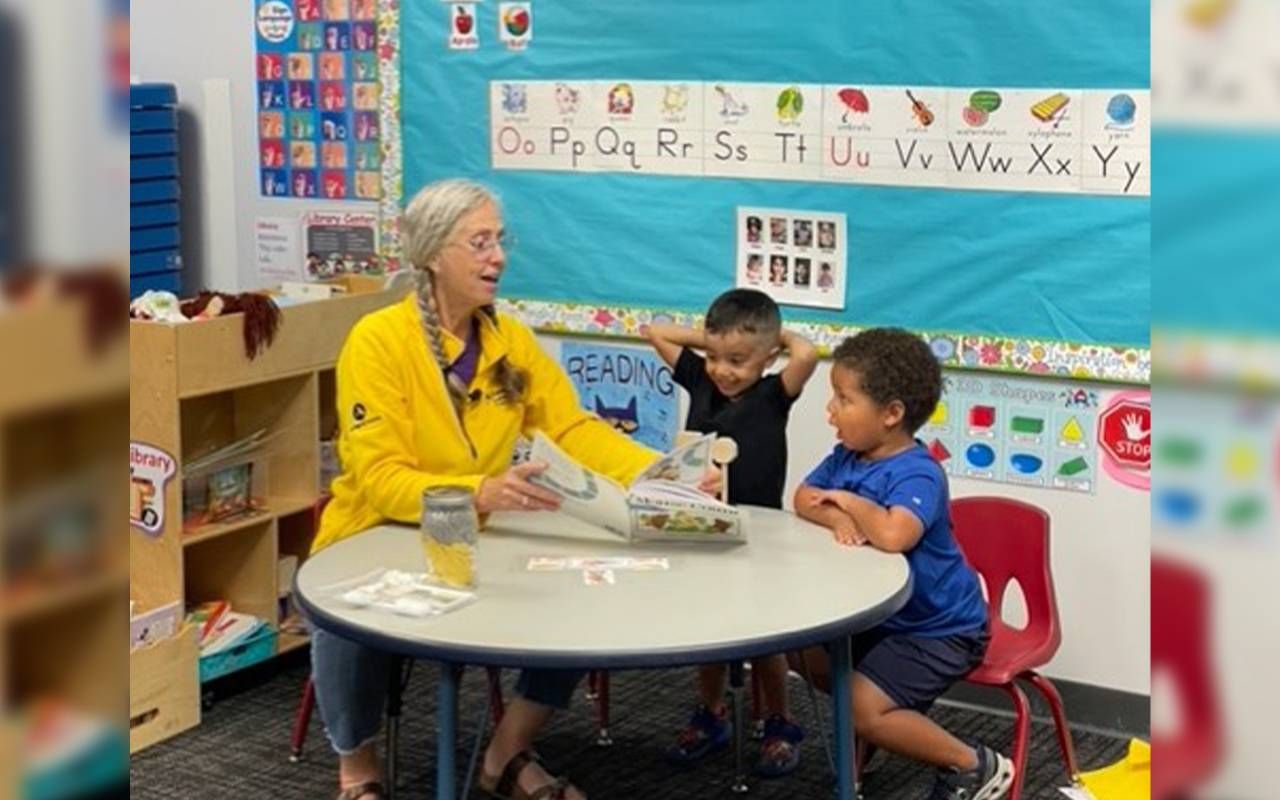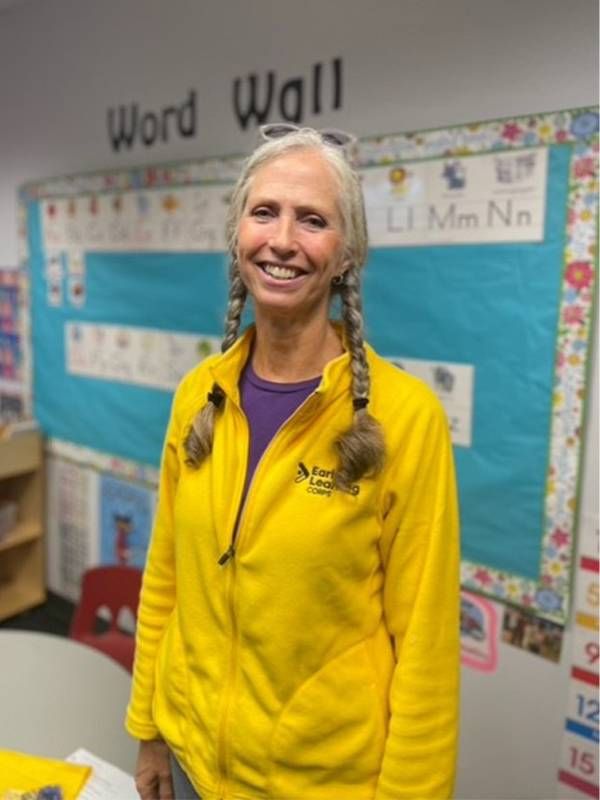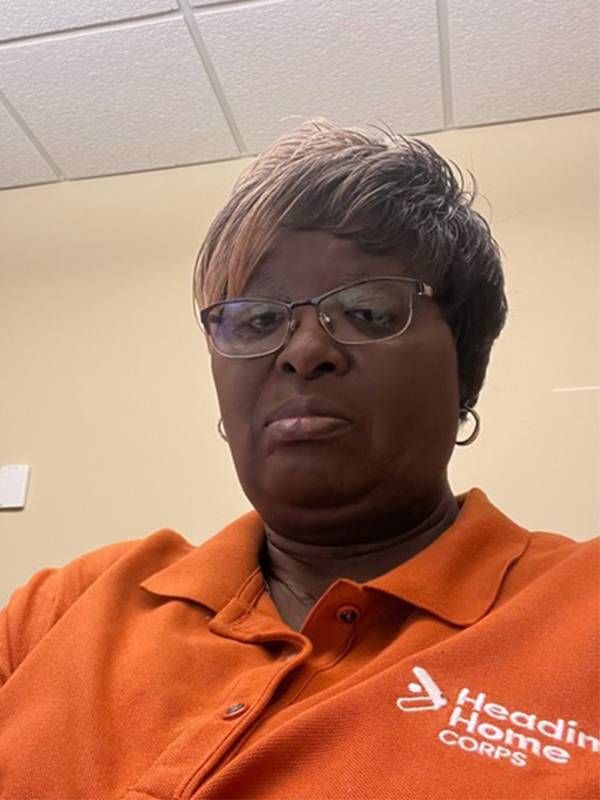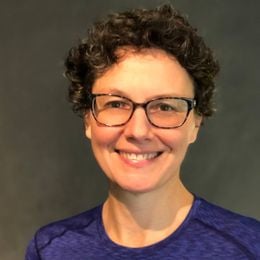The Triple Crown for Volunteers
Joining AmeriCorps helped the author to meet people in her rural hometown, do meaningful work she is passionate about — and earn a little money
Joining AmeriCorps in January 2023 was ideal for me. As a Community Stewardship Facilitator at ServeMinnesota's Climate Impact Corps, I connected with others in my community to learn which local environmental issues were priorities to them, and then recruited them to act through small service projects.

This enabled me to meet and build relationships with people in and beyond my small, rural community. Even better, I did meaningful work that I was passionate about, and I got paid to do it.
At 51, I happened to be the oldest Community Stewardship Facilitator in my cohort, but I quickly learned that AmeriCorps service members are a diverse group representing a wide range of ages and varied backgrounds.
Paid Service: A Unique Opportunity
Many readers are likely familiar with AmeriCorps, the federal agency focused on service and volunteerism in local communities, both rural and urban, in the U.S. and its territories. It is similar in structure to the Peace Corps, which offers opportunities for adults of all ages to serve abroad.
AmeriCorps' primary areas of focus are education, disaster response, healthy futures, environmental stewardship, economic opportunity and veterans and military families.
The program's benefits attract younger adults seeking relevant experience in a specific field, but those same benefits also appeal to adults over 50 who are looking for an encore career or simply want to serve their local communities but can't or don't want to volunteer all of their time pro bono.
Not Exactly Volunteer Work, Not Exactly a Job
The primary difference between service with AmeriCorps and volunteer work is the pay. While serving, members receive a bi-weekly living stipend which varies based on the location and type of service, and whether service is part-time or full-time.
"Service only requires passion for an area, not necessarily experience."
AmeriCorps encompasses many different programs, so to be clear, I'm talking here about paid service in AmeriCorps' State and National programs, and Volunteers in Service to America (VISTA). Its National Civilian Community Corps (NCCC) also offers a living stipend, but is designed for members aged 18 to 24.
AmeriCorps Seniors is a program for those 55 and older and follows a more traditional volunteer model where volunteers get to choose how many hours a week they want to serve, and there is generally no compensation other than liability insurance and small stipends for low-income volunteers in certain roles.
AmeriCorps' paid service differs from traditional employment in that service terms are temporary, typically lasting from six to 11 months, and are limited to four jobs over the member's lifetime.
While members are generally expected to work full- or part-time schedules in order to earn a stipend and associated benefits, they only need to accumulate a set number of service hours over their term.
While this affords some schedule flexibility, there's no official paid time off, or even paid holidays. Rather, AmeriCorps builds a "cushion" into each service term so that members can manage their time in conjunction with their site supervisor and program manager.
Benefits of Service
The benefits of serving with AmeriCorps go beyond the modest cash stipend. Medical insurance is provided at no cost to full-time service members who opt in and child care is provided free of charge for those who qualify.

Members who successfully complete their term are eligible for up to two Segal AmeriCorps Education Awards that they can put toward current or future tuition or use to repay student loans. Members 55 and older have the option to pass this award onto certain family members.
Then there are the non-monetary benefits, which some consider to be even more valuable.
"Service only requires passion for an area, not necessarily experience," Atalaya Sergi, director of AmeriCorps Seniors told us. This willingness to train people who are new to a particular field is attractive to service members of all ages.
"I wanted that training," Wendy Johnson, 62, of Minneapolis, told us. Johnson had been teaching writing at the college level when COVID hit. "When all of the classes went online, I wasn't getting enough hours to keep my health insurance," she said.
It was a scary time, but Johnson turned it into an opportunity.
She joined AmeriCorps' Early Learning Corps, where she tutors preschoolers in literacy and numeracy. She served her first term over the 2022-23 school year as a transitionary gig while trying to decide what would come next, but she loved it so much, she signed on for a second term.
"I just have an ideal situation," Johnson said. "I love the classroom teacher, I can walk to work, the education assistant and the teacher and I make an incredible trio of a team. Health care is a big motivation, too, since I can't get Medicare for a few more years."
The only downside, she said, is the pay, which ranges from $12,530 to $17,000 in Minnesota, according to ServeMinnesota, a private nonprofit. "The living stipend is very hard to make ends meet with," Johnson said. "I don't know how you'd do it if you weren't in a two-income or shared housing situation."
Indeed, the "living stipend" is well below a living wage in many communities. But combined with the health insurance, child care, the education award, top-notch training and incredible networking opportunities, total compensation begins to measure up a bit better.
Giving Back and Making a Difference
For Renea Maxfield, 68, also of Minneapolis, serving is a way to give back to the program she says lifted her up when she was at a low ebb in her life.
In 1991 she was a recently divorced, single mother living in a transitional shelter. "AmeriCorps gave me the opportunity to gain new skills and replace my despair with renewed purpose and hope," she said.

So, 30 years later, when she saw the posting for a Housing Resource Navigator in the Heading Home Corps, she jumped at the opportunity. "I always thought I would give back by serving with AmeriCorps again, and this was sort of like my niche," she said. "It's a setting I'm familiar with."
Each work day, Maxfield helps local community college students who face housing insecurity. She may help them apply for rental assistance, connect them with public service organizations or verify their homeless status for a financial aid package. A lot of her time is spent house- or apartment-hunting, seeking suitable accommodations by talking with landlords, public service organizations or even emergency temporary shelters.
When we asked about other service members working in her cohort, Maxfield said, "There's a nice variety. AmeriCorps looks for people with lots of different experience, so we come from all over. There's a variety of backgrounds, degrees and experience."
Maxfield views her age as an advantage. "It gives me the opportunity to use my life skills and everything I bring to the table to put them to good use," she said.
Johnson echoed this sentiment. "I'd even say that I've met several of the older, retired folks and you can tell that all of this life experience really gives us a leg up," she said.
"I feel like I'm appreciated and I'm making a difference in people's lives every day."
Sergi, at AmeriCorps headquarters, said the diversity in service members' ages and backgrounds was an asset. "It's helpful because everybody brings a different perspective from where they are in their life at that time," she said.
"Our older members have all of those lived experiences and skills they have developed over their lifetime. They have better soft skills, as well, like staying calm in a crisis and knowing how to talk to the people they're serving."
Johnson highlighted one of the biggest benefits of all, though, when she said, "I'm a person who needs to feel appreciated, and with this I feel like I'm appreciated and I'm making a difference in people's lives every day."


